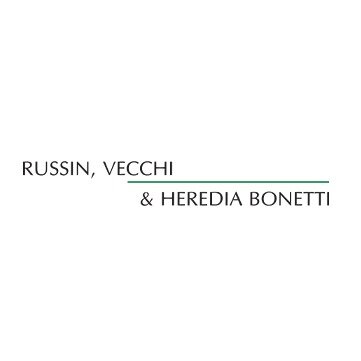Best Art & Cultural Property Law Lawyers in Santo Domingo Este
Share your needs with us, get contacted by law firms.
Free. Takes 2 min.
List of the best lawyers in Santo Domingo Este, Dominican Republic
About Art & Cultural Property Law in Santo Domingo Este, Dominican Republic
Art & Cultural Property Law in Santo Domingo Este, Dominican Republic, is a specialized field that focuses on the protection, management, and transfer of artistic works and cultural heritage. This legal area encompasses a broad range of subjects, including issues of intellectual property rights, the preservation of cultural heritage sites, the prevention of illicit trafficking of cultural goods, and the regulation of the art market. The Dominican Republic, rich in cultural heritage and historical artifacts, applies national and international legal frameworks to safeguard its cultural assets and to maintain cultural identity.
Why You May Need a Lawyer
Individuals and organizations may require legal assistance in Art & Cultural Property Law for various reasons. Here are some common situations:
- Buying or selling art and cultural artifacts requires understanding legal ownership and provenance.
- Art collectors might need advice on intellectual property issues related to copyright, trademark, or moral rights.
- Museums and cultural institutions often seek legal guidance for the protection and management of their collections.
- Legal intervention may be required to resolve disputes over the ownership or authenticity of a cultural object.
- Compliance with national and international laws regarding cultural property protection needs expert legal advice.
Local Laws Overview
The Dominican Republic has specific laws and regulations concerning Art & Cultural Property. Key aspects include:
- Constitutional Protection: The Dominican Constitution includes provisions for the preservation of cultural heritage.
- Intellectual Property Law No. 65-00: This law governs copyright and related rights, directly impacting artworks and original creations.
- Law No. 318-68 on Protection of Cultural Heritage: Aims to protect and preserve archaeological, historical, and artistic property.
- National Office of Copyright (ONDA): Oversees the registration and protection of copyright and related rights.
- International Treaties: The Dominican Republic is a signatory to various international agreements, including the UNESCO Convention on the Means of Prohibiting the Illicit Import, Export, and Transfer of Ownership of Cultural Property.
Frequently Asked Questions
What is the legal definition of cultural property?
Cultural property includes objects, sites, and structures of historical, artistic, or archeological significance. These can be artworks, artifacts, monuments, and sites that reflect cultural heritage.
Can I export artwork from the Dominican Republic?
Exporting artwork may require permission from relevant authorities to ensure compliance with national and international cultural property laws.
How can I verify the authenticity of art I purchase?
It's advisable to seek a certificate of authenticity and provenance documentation. Consulting with legal experts or art historians can also help verify authenticity.
What legal actions can be taken if I find stolen cultural goods?
If you encounter stolen cultural goods, it's crucial to report them to local authorities immediately. Legal action can involve recovery and restoration processes through the courts.
What rights do artists have over their creations in the Dominican Republic?
Artists have moral and economic rights under the Dominican Intellectual Property Law, allowing them to protect, exploit, and be credited for their works.
How are disputes over cultural property resolved?
Disputes can be resolved through legal mediation, negotiation, or litigation in courts, depending on the case specifics.
Is there a legal framework for protecting digital art?
Yes, the Dominican Intellectual Property Law No. 65-00 extends protection to digital creations, including software, digital art, and multimedia.
Which entities oversee cultural property laws?
Various governmental bodies, including the Ministry of Culture and the National Office of Copyright (ONDA), oversee cultural property laws and compliance.
What steps should I take if my cultural property has been infringed?
Contact a legal expert specializing in Art & Cultural Property Law to evaluate your case and take the necessary legal actions.
Are there tax considerations for art transactions in Santo Domingo Este?
Yes, tax implications can vary depending on the nature of the transaction. Consulting with a legal or tax advisor is recommended to navigate these complexities.
Additional Resources
For further assistance, the following resources may be helpful:
- Ministry of Culture: Manages cultural heritage policies and issues permissions for cultural property transactions.
- National Office of Copyright (ONDA): Offers resources and assistance related to copyright and intellectual property rights.
- UNESCO Office in the Dominican Republic: Provides information and support on international cultural heritage protection norms.
- Local Law Firms: Engaging with local law firms specializing in Art & Cultural Property Law can offer personalized legal advice.
Next Steps
If you need legal assistance in Art & Cultural Property Law, consider the following steps:
- Identify the specific nature of your legal needs, such as buying art, resolving a dispute, or protecting your creations.
- Consult with a legal expert specializing in Art & Cultural Property Law to gain insights into your situation and potential legal actions.
- Gather all relevant documentation, such as contracts, authenticity certificates, or provenance records, to support your legal case.
- Reach out to relevant governmental bodies if official permissions or verifications are required.
- Consider mediation or legal representation if your case involves litigation or negotiation with third parties.
Lawzana helps you find the best lawyers and law firms in Santo Domingo Este through a curated and pre-screened list of qualified legal professionals. Our platform offers rankings and detailed profiles of attorneys and law firms, allowing you to compare based on practice areas, including Art & Cultural Property Law, experience, and client feedback.
Each profile includes a description of the firm's areas of practice, client reviews, team members and partners, year of establishment, spoken languages, office locations, contact information, social media presence, and any published articles or resources. Most firms on our platform speak English and are experienced in both local and international legal matters.
Get a quote from top-rated law firms in Santo Domingo Este, Dominican Republic — quickly, securely, and without unnecessary hassle.
Disclaimer:
The information provided on this page is for general informational purposes only and does not constitute legal advice. While we strive to ensure the accuracy and relevance of the content, legal information may change over time, and interpretations of the law can vary. You should always consult with a qualified legal professional for advice specific to your situation.
We disclaim all liability for actions taken or not taken based on the content of this page. If you believe any information is incorrect or outdated, please contact us, and we will review and update it where appropriate.










